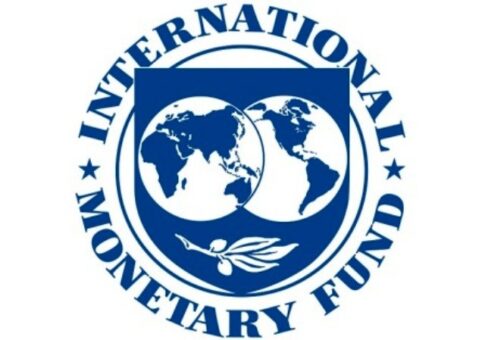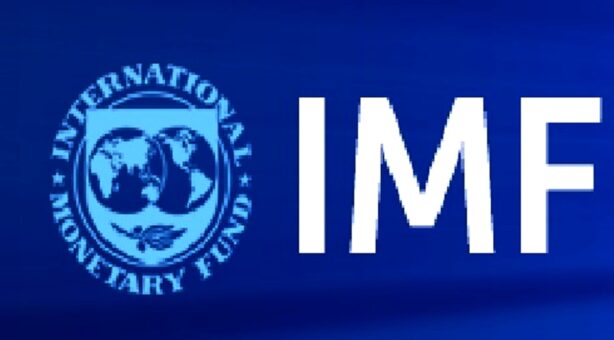ISLAMABAD: The ministry of finance has said that International Monetary Fund (IMF) has acknowledged Pakistan’s reform program on track and business and market confidence is returning.
In a statement on Sunday, the finance ministry highlighted IMF Board Assessment key economic performance indicators.
It said that on the completion of first review of Pakistan’s economic performance, IMF has acknowledged that Pakistan’s reform program is on track and already producing results.
Decisive policy implementation has started to address the deep-seated problems of Pakistan’s economy and to reverse its large imbalances, preserving financial stability.
The report acknowledges that the business climate has improved, and market confidence is returning.
IMF further adds in its assessment that the Government recognizes that structural reforms, especially in SoE sector are key to revive economic activity and growth.
IMF has released SDR 328 million (about $ 452.4 million), bringing total disbursements to SDR 1,044 million (approx $1.45 billion).
The report has confirmed that End-September performance criteria (PCs) were observed with wide margins. These include
— Zero budgetary borrowing from SBP
— Primary budget deficit ceiling
— Ceiling on government guarantees
— Zero external public payment arrears
— SBP net international reserves (NIR), net domestic assets (NDA), and swaps/forwards targets all met
In addition to above, all structural benchmarks (SBs) for end-September, except the SB on AML/CFT, were completed.
With regard to inflation outlook, IMF has lowered Inflation projection for FY20 to 11.8 percent, down from 13 percent earlier on account of this fact that the administrative and energy tariff adjustments are expected to offset the effects from weak domestic demand. Thereafter, inflation is expected to converge to 5-7 percent.
The report confirms that inflation has been started to stabilize, along with core inflation, and the SBP stance is appropriate (no need for further rate hikes).
However, we are of the view that we will do much better than IMF projection. As inflation during Jul-Nov was 10.8 percent and with measures taken we target to bring inflation down to 5 percent over the medium term.
With regard to the external sector, significant improvement has been witnessed. Overall, Current Account Deficit (CAD) shrunk by almost two-thirds (74 percent) in the Q1 FY 20 compared to the same period of FY 2019. CAD is projected to decline to 2.4 percent of GDP in FY20 (4.9 percent), which is lower than earlier IMF forecasts of 2.6 percent.
Total imports fell by 23 percent y-o-y in Q1 of FY2020, but imports of machinery and equipment were more resilient, rising about 2 percent y-o-y. Exports are showing some sign of recovery, up 2 percent y-o-y for the same period with 17 percent volume growth, mainly driven by food and textiles.
The report states that transition to a market determined exchange rate has allowed the rupee to find its new equilibrium quickly, thereby, successfully correcting the ‘exchange rate overvaluation’ of the last 5 years.
The report has also acknowledged strong Fiscal performance in the First Quarter of FY2020 while stating Primary surplus of 0.6 percent of GDP and an overall deficit of 0.6 percent of GDP, about 1 percent of GDP better than programmed.
In addition, Tax revenue growth was in double-digits (net of refunds) even though customs receipts and other external sector related taxes have suffered due to import compression.
Key Concessions won by Government includes:
Ceiling on NDA of SBP (Performance benchmark) has been enhanced to Rs 9.1 trn (8.7), an increase of Rs 339 billion in FY20.
This is positive for growth and will be utilized for concessional financing for the export industry
Ceiling on government guarantees has been enhanced to Rs 1.8trn (1.6), an increase of Rs 252 billion in FY20
This is positive for growth and will allow government to settle the outstanding stock of circular debt
Floor on FBR tax collections for FY20 has been revised lower to Rs 5.2trn (5.5), due to strong improvement in non-tax revenue
During H1 Fy20, government non tax revenue collection has hit Rs 878 billion which is 75 percent of full year budgeted collection of Rs 1.16 trn.
This is positive for growth and will ease the burden on public and businesses
The finance ministry highlighted Current Economic Performance:
Pakistan economy has witnessed significant improvements in recent months as evidenced from the performance of key economic indicators mentioned below:
Exchange rate is stable for 5 months, Rupee appreciated by 3.2 percent (Rs/$ 160.1 to 154.89)(20th Dec, 2019), Stock Exchange 100-Index up 20.1 percent since 1st July, 2019 (33,996) to 40,832(20th Dec, 2019) , SBP FX Reserves increase to $ 10.8 billion (13th Dec, 2019), from 7.2 billion (June 2019) , Ease of Doing index up by 28 points (108/190) and World Bank rank Pakistan in Top 10 improvers.
After 4 years of outflow, total foreign portfolio investment up $ 1.2 billion during Jul-Nov FY20 (-330 million last year). FDI increased to 850 million (477.3 million last year)↑ 78.1 percent. Total foreign investment reached to $2 billion (last year 147 million).
Similarly, Incorporation of Companies increased 25.8 percent (7,177 from 5,707) during Jul-Nov FY2020.
FBR tax collection grew by 16.8 percent to Rs 1615.2 billion during July-November, FY2020 against Rs 1382.9 billion last year. Within total FBR tax collection Domestic tax collection grew up 21.5 percent and Import taxes down 2.6 percent (import compression)
On external side, Exports increased by 4.7 percent to $10.31 billion during July-November, FY2020 against $9.85 billion in the same period last year, while Imports decreased by 21.1 percent to $18.31 billion during July-November, FY2020 against $23.22 billion in the same period last year.
Consequently, Trade deficit decreased 40.1 percent to $8.002 billion during July-November, FY2020 against $13.36 billion in the comparable period of last year.
Cement dispatches increased by5.8 percent to 20.462 million ton (15.4million ton). Cement export increased 21.5 percent to 3.608 million ton (2.4 million ton).
Other Developments include:
PSDP releases system is accelerated. In this regard ways & means and Finance Division endorsement is eliminated.
As a major development, PSX becomes best performing market as per Bloomberg in last three months. PSX benchmark KSE 100-Index gained around 10,500 point in last three months.
Similarly, the Moody’s Investors Service upgraded Pakistan’s credit rating outlook to stable from negative.
On external front, in the month of November, 2019 Exports increased 11.23 percent to $2.110 billion against $1.897 billion in the same month last year while Imports decreased 13.18 percent to $3.648 billion as compared with $4.202 billion in the comparable period last year.
In October 2019, on M-o-M, LSM registered a growth 4.01 percent (Sep 1.9 percent), indicating upward trajectory. Cement dispatches increased 10.6 percent in November to 4.35 million ton (3.9 million ton).
Another important development is that Karkey renegotiated to save Pakistan $ 1.2 billion.
Circular Debt:
Monthly flow decreased from Rs 38 billion in July 2019 to about Rs 10 billion. Targeted to be zero next year.
Strategy for dealing with the stock of debt being finalized.
Protection for lower end consumers <300 from price rationalization.
More effective recovery/detection of electricity theft (>50 million).
Ministry of Energy will issue an additional Rs 250 billion Sukuks (with government guarantee) in FY2020 to retire the CPPA liabilities of the IPPs.
Compact for Jobs & Growth
Scale up Affordable Housing devised by Naya Pakistan Housing Authority
Additional budgetary allocation of Rs 20 billion to 30 billion in FY2020 to cover the 10 percent down payment by beneficiaries of affordable housing. The total impact of this stimulus to the economy would be equivalent to Rs 200 billion to Rs 300 billion.
Tax Credits equal to 10 percent of the amount of expense related to these projects including labour related costs will be allowed to the developer for the first two years
Exporter’s package
Additional credit of Rs 200 billion for exporters under the Export Finance Scheme (EFS) in FY2020
The interest rate differential (between Kibor and EFS markup) will be paid by additional Rs 10 billion subsidy by the government in FY2020
This will boost export sector and reduce their cost of doing business
SBP will give additional Rs 100 billion worth of lending to the exporters, to be subsidized by government through SBP profits.





